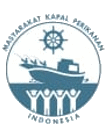GRANGER CAUSALITY POLA KONSUMSI IKAN DI ACEH TENGAH MENGGUNAKAN ANALISISI VECTOR ERROR CORRECTION MODEL (VECM)
Abstract
Full Text:
PDFReferences
Aimon, Hasdi. 2012. Produktivitas, investasi sumberdaya manusia, investasi fisik, kesempatan kerja terhadap kemiskinan dan pertumbuhan ekonomi di indonesia. Jurnal Kajian Ekonomi.
Andrei, Dalina Maria, and Liviu C. Andrei. 2015. “Vector Error Correction Model in Explaining the Association of Some Macroeconomic Variables in Romania.” Procedia Economics and Finance.
Arthatiani, Freshty Yulia, Nunung Kusnadi, and Harianto Harianto. 2018. Analisis pola konsumsi dan model permintaan ikan menurut karakteristik rumah tangga di indonesia. Jurnal Sosial Ekonomi Kelautan dan Perikanan.
Asari, Fadli Fizari Abu Hassan et al. 2011. “A Vector Error Correction Model ( VECM ) Approach in Explaining the Relationship Between Interest Rate and Inflation Towards Exchange Rate Volatility in Malaysia.” World Applied Sciences Journal.
Asfar, Muh, Abu Bakar Tawali, and Meta Mahendradatta. 2014. “Potensi Ikan Gabus (Channa Striata) Sebagai Sumber Makanan Kesehatan- Review.” In Prosiding Seminar Nasional Teknologi Industri II,.
Kilian, Lutz, and Helmut Lütkepohl. 2017. “Vector Error Correction Models.” In Structural Vector Autoregressive Analysis,.'
Kusuma, Rendra, Ali Khomsan, and Lilik Kustiyah. 2017. Konsumsi ikan pada ibu hamil dan kaitannya dengan outcome kelahiran. Media Kesehatan Masyarakat Indonesia.
Lestari, Endang Wiji, Idha Haryanto, and S Marwardi. 2009. “Konsumsi Kopi Masyarakat Perkotaan Dan Faktor-Faktor Yang Berpengaruh: Kasus Di Kabupaten Jember.” Pelita Perkebunan.
Nurjanah, Nurjanah, Taufik Hidayat, and Silvia Mawarti Perdana. 2015. “Analisis Faktor Faktor Yang Mempengaruhi Konsumsi Ikan Pada Wanita Dewasa Indonesia.” Jurnal Pengolahan Hasil Perikanan Indonesia.
Parsaulian, Baginda, Hasdi Aimon, and Ali Anis. 2013. Analisis konsumsi masyarakat di indonesia. Jurnal Kajian Ekonomi.
Pratisti, Cahyani. 2017. “Model Konsumsi Ikan Pada Konsumen Muda (Studi Di Yogyakarta).” Jurnal Riset Ekonomi Manajemen (REKOMEN).
Pusat Data dan Sistem Informasi Pertanian. 2014. “Buletin Konsumsi Pangan.” 2014.
Putranto, Kelik, and Ahmad Taofik. 2015. “Pola Diversifikasi Konsumsi Pangan Masyarakat Adat Kampung Cireundeu Kota Cimahi Jawa Barat.” Jurnal Istek.
Sirajuddin, Sumitra, and Trina Astuti. 2018. Kementrian Kesehatan Republik Indonesia Survey Konsumsi Pangan.
Sitepu, Rasidin Karo-karo. 2007. “Dampak Investasi Sumberdaya Manusia Dan Transfer Pendapatan Terhadap Distribusi Pendapatan Dan Kemiskinan DI Indonesia.” Thesis.
Wright, Patrick M., and Gary C. Mcmahan. 2011. “Exploring Human Capital: Putting ‘human’ Back into Strategic Human Resource Management.” Human Resource Management Journal.
Yasrizal. 2018. Household welfare in aceh province the impact of non-food commodity inflation on changes of household welfare in aceh province. : 56–66.
DOI: https://doi.org/10.35308/jpt.v6i2.2185
Refbacks
- There are currently no refbacks.
Copyright (c) 2020 JURNAL PERIKANAN TROPIS
Jurnal Perikanan Tropis (print ISSN 2355-5564 ;online ISSN 2355-5572), is published by the Faculty of Fisheries and Marine Science Universitas Teuku Umar, Indonesia .

This work is licensed under a Creative Commons Attribution-NonCommercial-ShareAlike 4.0 International License










